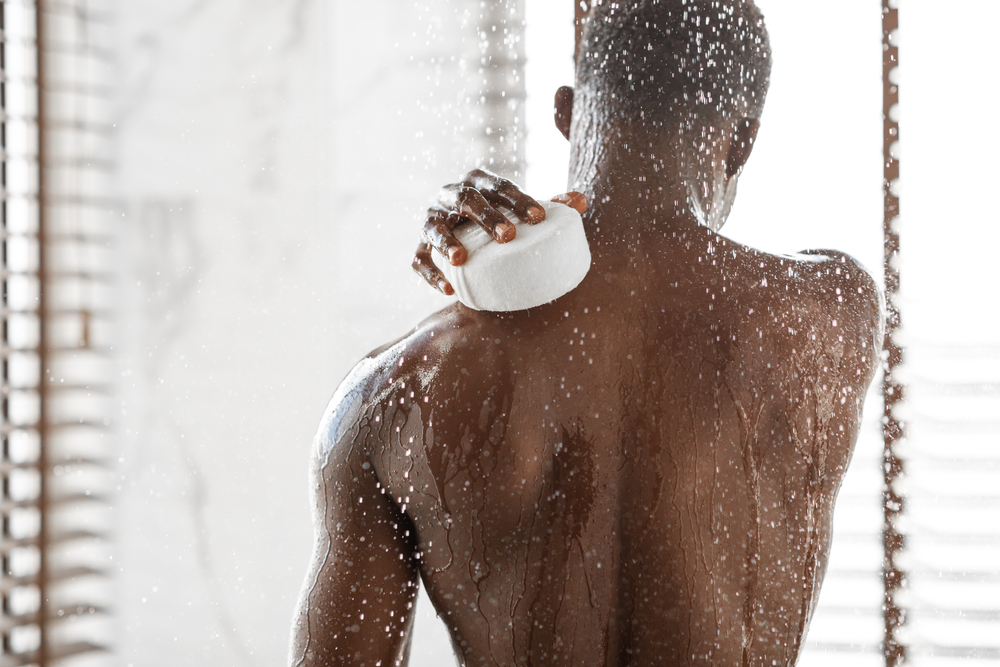The thought of stepping into an icy shower first thing in the morning makes most of us shudder. That initial shock as cold water hits your warm skin triggers an immediate gasp, racing heart, and perhaps a few choice words. But beyond that momentary discomfort lies a fascinating cascade of internal changes that might make you reconsider your shower temperature preferences.
Cold exposure through showers has gained popularity in wellness circles, with advocates ranging from athletes to biohackers claiming benefits from increased energy to improved mood. While some claims stretch beyond current evidence, research does suggest that cold showers trigger remarkable responses throughout your body’s organs and systems. Let’s take a journey inside your body to understand what really happens when you turn that temperature dial to cold.
Your skin’s surprising response
Your skin, the largest organ of your body, serves as the frontline responder to cold water exposure. The moment cold water hits your skin, thermoreceptors detect the temperature drop and send urgent signals to your brain. This triggers an immediate constriction of blood vessels near your skin surface, a process called vasoconstriction.
This vasoconstriction serves as a protective mechanism, reducing blood flow to your extremities and skin to minimize heat loss and preserve core temperature. The visible effect is that characteristic “goosebumps” appearance as tiny muscles attached to hair follicles contract, along with paler skin as blood retreats deeper into your body.
Interestingly, this initial defensive response may actually benefit your skin over time. Regular cold exposure has been linked to improved circulation as your blood vessels learn to contract and dilate more efficiently. Some dermatologists suggest this improved circulation may contribute to healthier skin appearance, potentially reducing inflammation and even helping maintain tighter pores.
The cold also affects sebum production, the natural oil your skin produces. While research isn’t definitive, some evidence suggests cold water might help balance oil production and reduce skin issues related to excess sebum. At the very least, cold water avoids the stripping effect that hot water can have on your skin’s natural oils and protective barrier.
Heart and circulation under pressure
When cold water hits your body, your cardiovascular system springs into emergency mode. Your heart rate initially spikes as part of the shock response, then typically slows down as your body adjusts. Meanwhile, blood pressure temporarily increases as peripheral blood vessels constrict and blood flow redirects to vital organs.
This cardiovascular stress, when experienced in controlled, brief episodes, may actually strengthen your heart and blood vessels through a process similar to exercise called hormesis. This principle, where mild stress triggers adaptive responses, could explain why some research has found associations between cold water immersion and improved cardiovascular health markers.
The improved vasomotor control that develops with regular cold exposure may have longer-term benefits for blood pressure regulation. Your blood vessels essentially get “exercise” as they practice constricting and dilating in response to temperature changes. This vascular workout might translate to more efficient blood pressure regulation throughout the day.
Cold exposure also appears to affect blood composition, with some studies showing increases in red blood cell count, platelet count, and blood viscosity following cold immersion. While the clinical significance remains unclear, these changes suggest cold showers might influence not just where your blood flows but also its composition.
Your nervous system awakens
Perhaps the most immediate and noticeable effect of cold showers occurs in your nervous system. That gasp-inducing shock activates your sympathetic nervous system, the “fight-or-flight” branch responsible for alertness and energy mobilization. This explains the wide-awake feeling many cold shower enthusiasts describe.
Simultaneously, your body releases norepinephrine, a neurotransmitter and hormone that increases alertness and attention. Research has found cold exposure can increase norepinephrine levels by up to 530%, potentially explaining the mental clarity and mood boost many people report after cold showers.
Interestingly, while cold exposure initially activates the sympathetic stress response, regular practice may ultimately strengthen your parasympathetic “rest-and-digest” system. This parasympathetic adaptation could help explain anecdotal reports of improved stress management among cold shower enthusiasts.
Cold exposure also stimulates sensory neurons throughout your skin, sending a high volume of electrical impulses to your brain. Some researchers speculate this sensory “flood” might have an anti-depressive effect by overwhelming negative thought patterns and creating a form of sensory meditation. One study found regular cold showers reduced self-reported depressive symptoms by up to 29%.
Metabolic engines rev up
Your body’s primary concern during cold exposure is maintaining core temperature, which requires energy. This triggers several metabolic adjustments that affect multiple organs, particularly those involved in energy production and temperature regulation.
Brown adipose tissue, a specialized type of fat designed to generate heat, becomes activated during cold exposure. Unlike regular white fat that stores energy, brown fat burns calories to produce heat through a process called thermogenesis. While humans have relatively small amounts of brown fat compared to other mammals, research suggests regular cold exposure might increase both the volume and activity of this metabolically active tissue.
Your endocrine system also responds to the cold by releasing hormones that facilitate energy mobilization. Thyroid hormones, which regulate metabolism, may show altered patterns with regular cold exposure. Similarly, cold triggers the release of adiponectin, a hormone that affects glucose regulation and fatty acid breakdown.
The liver, central to metabolic regulation, ramps up glucose production during cold exposure to provide energy for thermogenesis. Meanwhile, skeletal muscles may increase their energy consumption, not just through shivering but also through non-shivering thermogenesis mechanisms that burn calories to generate heat.
These metabolic effects have led some researchers to investigate cold exposure as a potential weight management tool. While not a replacement for proper diet and exercise, some evidence suggests regular cold exposure might support healthy metabolism and potentially contribute to modest calorie burning.
Immune function fortification
One of the most intriguing benefits attributed to cold showers is enhanced immune function. While the “cold prevents colds” folk wisdom deserves skepticism, research does suggest moderate cold exposure might influence immunity in beneficial ways.
A notable study published in PLOS One found that participants who finished their daily showers with a 30-90 second cold blast reported 29% fewer sick days than those who took warm showers only. While the mechanisms aren’t fully understood, several physiological responses might contribute to this effect.
Cold exposure appears to increase levels of glutathione, an important antioxidant that supports immune function. It also enhances the production and circulation of certain white blood cells involved in fighting infections, potentially providing more “surveillance” throughout your body.
The stress of cold exposure also triggers a mild inflammatory response that, somewhat paradoxically, may train your immune system to better regulate inflammation overall. This improved inflammatory control could help explain why regular cold showers might reduce chronic low-grade inflammation associated with various diseases.
However, it’s worth noting that extreme or prolonged cold exposure can suppress immune function, highlighting the importance of moderation. The hormetic benefits appear to come from brief, manageable cold exposure rather than extreme challenges to your body’s temperature regulation.
Your brain on cold
Beyond the immediate alertness boost, cold showers may have more profound effects on your brain over time. The cold-triggered release of norepinephrine not only affects alertness but also influences pain perception, mood, and potentially even brain plasticity.
Cold exposure activates the endocannabinoid system, the same system targeted by CBD and related compounds. This activation may be partly responsible for the sense of calm and reduced anxiety some people report after the initial shock of cold exposure passes.
The increased blood circulation that eventually follows the initial vasoconstriction may temporarily enhance cognitive function. Though research in this area remains limited, some studies suggest cold exposure might improve attention, executive function, and working memory in the short term.
More speculatively, some researchers have investigated whether the physiological stress of cold exposure might increase resilience to psychological stress through cross-adaptation. The theory suggests that mastering your response to physical stressors might improve your ability to handle emotional and mental challenges.
The practice of intentionally facing the discomfort of cold showers might also have psychological benefits beyond the direct physiological effects. The act of voluntarily exposing yourself to controlled discomfort may build mental toughness and self-discipline that transfers to other areas of life.
From a practical standpoint, cold showers offer an accessible form of hormetic stress that most people can incorporate into their routine. Starting with a normal shower and finishing with just 15-30 seconds of cold water may be enough to trigger many of these physiological responses while remaining tolerable even for cold-averse individuals.
Whether you’re looking to boost alertness, support recovery after exercise, potentially enhance immune function, or simply break out of comfort-zone routines, the evidence suggests those few moments of discomfort might trigger surprising changes throughout your body’s organs and systems. As with most health practices, consistency likely matters more than intensity, with regular brief cold exposure potentially offering more sustainable benefits than occasional polar plunges.
















